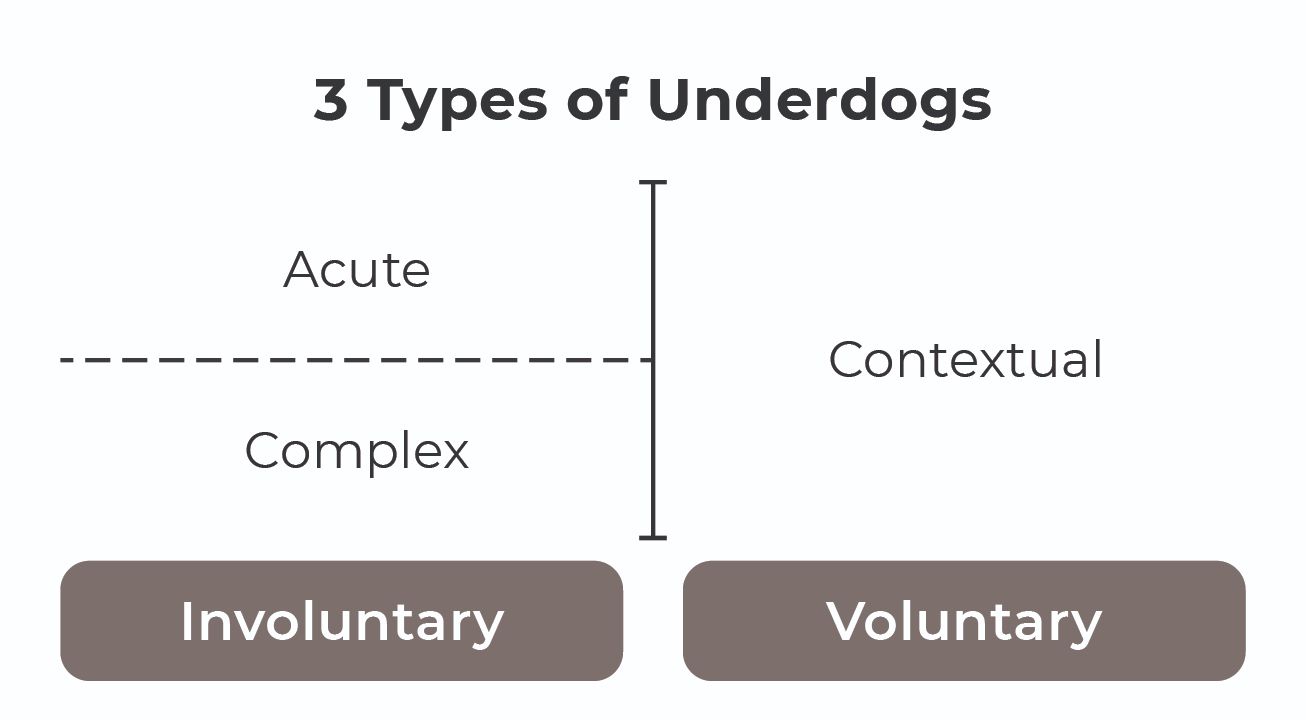Voluntary vs. Involuntary Disadvantage: What Type of Underdog Are You?

Everyone loves a good underdog story. The person who rises above the odds, proving doubters wrong and achieving success despite adversity. But not all underdogs are the same. There are two primary kinds: those who face involuntary disadvantage and those who choose voluntary disadvantage. Understanding where you fall can help you harness your strengths and push through challenges more effectively.

Involuntary Disadvantage: The Unchosen Struggle
Involuntary disadvantage happens when circumstances beyond your control put you at a disadvantage. These are the classic underdog stories—people born into poverty, individuals with disabilities, immigrants facing cultural barriers, or anyone navigating systemic obstacles. They didn’t ask for these challenges, but they have to overcome them to succeed.
Common Traits of Involuntary Underdogs:
- Resilience built from necessity
- Resourcefulness due to limited options
- Perseverance developed through hardship
- A deep appreciation for success
Many involuntary underdogs use their struggles as motivation, refusing to let their circumstances define their outcomes. They develop an unmatched work ethic because they’ve had no choice but to push forward.
Voluntary Disadvantage: The Willing Underdog
On the other side are those who knowingly put themselves in tough positions to test their limits. Think of an entrepreneur who leaves a secure corporate job, an athlete who trains at high altitudes for a competitive edge, or someone who embraces an extreme diet for optimal performance. These individuals create their own obstacles because they believe overcoming them will make them stronger.
Common Traits of Voluntary Underdogs:
- Self-imposed discipline
- Willingness to embrace discomfort
- A growth mindset that thrives on challenge
- A strategic approach to adversity
Unlike involuntary underdogs, voluntary underdogs don’t face hardship by chance; they seek it out. They recognize that struggle builds strength and intentionally put themselves in situations that force them to grow.
Which One Are You?
Understanding your type of disadvantage helps you refine your approach to overcoming obstacles. If you face involuntary disadvantage, embracing resilience and resourcefulness is key. If you take on voluntary disadvantage, structuring your challenges for maximum growth is essential.
No matter which type you identify with, success comes down to mindset. Are you using your disadvantage to fuel your progress, or are you letting it hold you back? The choice is yours.
